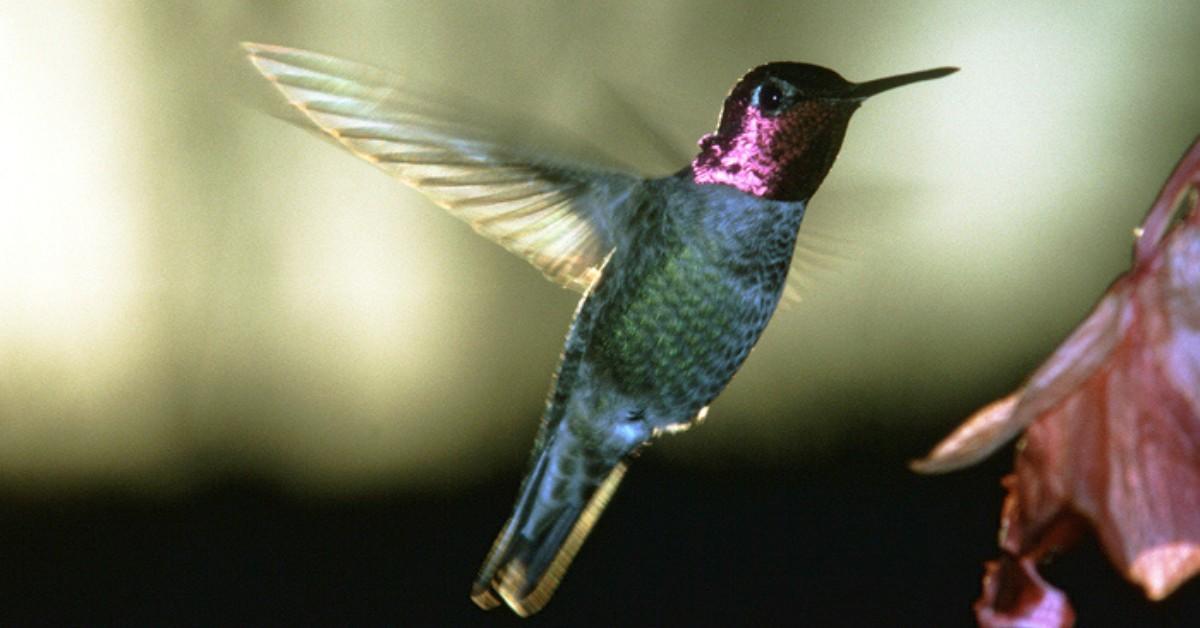Horrifying Video Shows a Praying Mantis Eating a Hummingbird — but Is It Real?
The beautiful birds stand no chance when faced with a praying mantis.
Published June 25 2024, 3:05 p.m. ET

Nature lovers everywhere know just how brutal things can be in the wild. And when it comes to survival of the fittest, sometimes that brutality comes from the most unlikely of places, like the docile-looking praying mantis. Thanks to alleged backyard footage, we now know just how fierce the praying mantis can be, especially when one turns their focus to eating something as adorable as a hummingbird.
But, is there any truth to the stop-motion footage? Or is it doctored to make it look like the large bug is taking a bite out of the tiny bird? Keep reading to find out if there's any reason to believe the stories about the praying mantis eating a hummingbird, and how these stories came to be in the first place.

Do praying mantises eat hummingbirds?
The short answer is yes, praying mantises will eat hummingbirds. That being said, the University of Florida's Institute of Food and Agricultural Sciences (UF/IFAS) blog says that it's very rare, and that it takes a considerably large mantis to consume a hummingbird.
UF/IFAS estimates that a mantis would need to be at least 4 inches long to accomplish this feat. Additionally, the mantis would have to be one of the faster mantis species in order to catch a hummingbird, which flaps their wings 200 times per second.
Additionally, the hummingbird would have to come across the waiting praying mantis' path. That means the mantis would have either had to have already been waiting on the hummingbird feeder to begin with, or the mantis would need to be lying in wait near a bloom the bird frequents, neither of which is incredibly common.
Check out this viral video of a praying mantis eating a hummingbird.
Some people aren't convinced that the below videos of a praying mantis eating a hummingbird isn't doctored — what do you think?
A praying mantis will eat more than just hummingbirds — lizards, frogs, and fish can also be victims.
Despite their prayer-like stance, the mantis is actually quite a vicious insect. They are called "ambush predators" by Newsweek, which notes that praying mantises been known to eat lizards, frogs, and fish in addition to unsuspecting (and might I add, unlucky) birds. And they aren't forgiving with their attacks. According to National Geographic, praying mantises show no mercy, and will use their long arms to impale the birds through the chest.
The horror show doesn't stop there, either. The magazine says that there have been stories of a mantis eating a hummingbird's eyes and heads, leaving their decapitated bodies behind. No, it's not a love of the macabre that has the mantis feeding this way, but instead it's logistics, since a hummingbird's body is covered in a thick layer of feathers, which may be too hard for a mantis to chew through even with their unbelievably strong jaws.
If all of this sounds horrifying to you, then you may be happy to know that there is something you can do to help prevent mantis attacks. When hanging hummingbird feeders, be sure that you're placing them away from shrubs and leaf cover that will allow a mantis to set up their attack. Sure, you may be costing a mantis a meal, but there will be a grateful hummingbird out there who will get to live to see another day because of you.